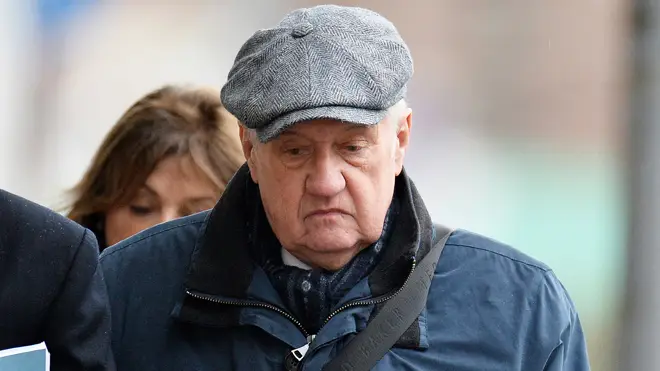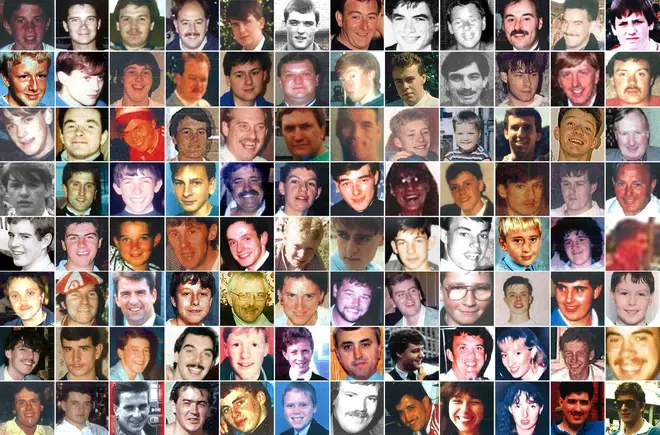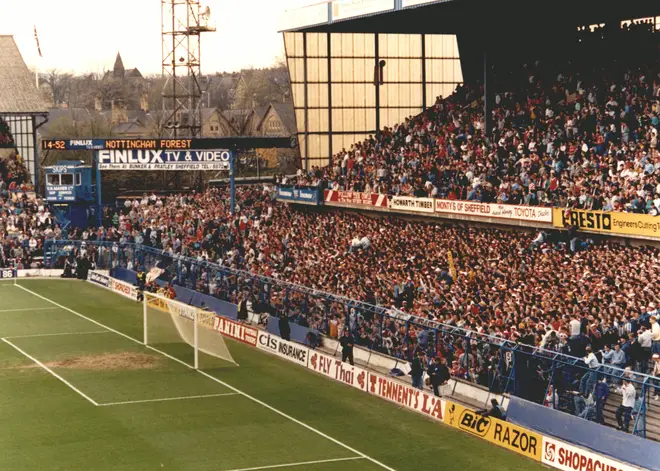
Paul Brand 10am - 12pm
28 November 2019, 15:48

The police commander in charge of operations during the Hillsborough disaster has been found not guilty of the gross negligence manslaughter of 95 fans who died at an FA Cup semi-final in 1989.
David Duckenfield, now 75, had been accused of the manslaughter of 95 Liverpool supporters at the FA Cup semi-final on April 15 that year.
After four days of deliberations, the jury returned a not guilty verdict today.
A total of 96 Liverpool fans died in a crush in the stands at the match between Liverpool at Nottingham Forest at the Hillsborough stadium in Sheffield.
Under the law at the time Duckenfield was not charged over the death of 96th victim Tony Bland, because he died more than a year and a day after the disaster.
Families of the victims spoke outside court saying the verdict was "disgraceful" and the "world knows the truth."
There were cries of "stitched up again" in court as the verdicts were returned. Other family members were in tears.
The jury took 13 hours and 43 minutes to return the verdict.

Barry Devonside, whose son Christopher, 18, died in the disaster, said: "I'm shocked and stunned by the verdict of the jury.
"We, the families, have fought for 30 years valiantly."
Duckenfield sat impassive in front of the dock with his hands clasped and then drank from a glass of water as the verdict came in.
Mr Justice Openshaw discharged the jury and expressed his "thanks and admiration" for the part they had played in the administration of justice.
One of the female jurors walked out in tears as the jury filed out of the courtroom.
Christine Burke, the daughter of Henry Burke who was killed in the tragedy, stood in the public gallery and addressed the judge.
She said: "With all due respect, my lord, 96 people were found unlawfully killed to a criminal standard."
Now in tears, she went on: "I would like to know who is responsible for my father's death because someone is."
Duckenfield's wife, Ann, later went over to comfort her husband in the courtroom.
Speaking after the verdict, Margaret Aspinall - whose son James died in the tragedy - said it was a "disgrace".
She added: "Who is accountable for 96 unlawfully killed? What a disgrace.
"I feel so embarrassed to say that is the system within our country. I am trying to be calm for these families who have suffered so much. So they've gone through so much.
"My concern is these families, please God give them some peace.
"As far as I am concerned that was a kangaroo court, There was so much evidence that could have been brought forward that was not allowed.
"If that had been allowed then he would have been found guilty."
The criminal investigation into the Hillsborough disaster has cost almost £60 million.
Operation Resolve, which has looked at the events on the day of the tragedy on April 15 1989, was set up in 2012 and at times had 200 investigators sifting through 143,000 documents relating to the disaster and hours of footage from the day.
Duckenfield stood trial earlier this year but the jury was discharged after failing to reach a verdict and a retrial was ordered.
Former Sheffield Wednesday club secretary Graham Mackrell, 69, stood trial alongside Mr Duckenfield in January.
He was found guilty of a health and safety offence for failing to ensure there were enough turnstiles to prevent unduly large crowds building up outside the ground.
He was fined £6,500 and ordered to pay £5,000.
- 10am: Match commander David Duckenfield briefs officers on duty on the day. He tells them: "I cannot stress too highly the word 'safety'." The briefing lasts just under 20 minutes.
- 2.15pm: Duckenfield enters the police control box at about this time. The box, which had screens showing CCTV images from around the ground, was above the Leppings Lane terrace.
- 2.17pm: Superintendent Roger Marshall, who was on duty at the Leppings Lane turnstiles which were allocated to Liverpool fans, requests the road is closed to traffic.
- 2.30pm: Duckenfield asks Superintendent Bernard Murray if all the Liverpool fans will get in by 3pm. More than 5,000 Liverpool fans with standing tickets still have to enter but he is told "no problem".
- 2.40pm: The police control box is experiencing problems with radios but a communications officer is working to fix the issue. Outside the turnstiles on Leppings Lane, fans are beginning to get crushed and a young boy is carried above the heads of the crowd to safety.
- 2.43pm: A request is made for a traffic vehicle with a Tannoy system to go to the Leppings Lane end. The operator in the police control box says: "We have a large crowd at that location and they are causing crushing at the gates."
- 2.46pm: Commentator John Motson comments there are spaces at the side of the terraces at the Liverpool end of the ground.
- 2.47pm: Mr Marshall sends one of three radio messages to police control to ask for permission to open the exit gates to prevent injury at the turnstiles.
- 2.48pm: Exit gate C at the Leppings Lane turnstiles is opened for a short period to eject a fan. Between 100 and 150 fans go in before it is closed again.

- 2.51pm: Radio recordings capture a conversation from the police headquarters at Snig Hill. One man says: "Bloody chaos at Leppings Lane, thousands can't get in. They've just broken gates down and Superintendent Marshall is screaming for them to open inner gates to let people in and Murray is saying in control we've got to monitor tickets, if we get Liverpool mixed up with Nottingham Forest we're going to have trouble." Someone can be heard saying "Seriously open the gates, open the gates to the Lepping..." over the radio.
- 2.52pm: Following an order from Duckenfield, gate C is opened for a second time and remains open for a longer period. This comes after a final radio request from Mr Marshall warns of a risk of death outside. More than 2,000 fans come through the gate, many making their way down the tunnel, which is straight ahead of them, and into pens three and four of the Leppings Lane terrace.
- 2.54pm: Video footage shows 27 of the 96 victims of the disaster in pen three at this time. Some of these, such as Thomas Howard, 39, and his son Thomas Howard Junior 14, had entered the ground through exit gate C. Others had been in the ground longer, such as David Steven Brown, 25, who went through the turnstiles at 2.11pm.
- 2.59pm: Pc Michael Ryan, in the police control box, tells police headquarters in a radio transmission: "It's chaos at the moment." Supporters climb out of the pens on to the pitch perimeter track.
- 3pm: The match kicks off.
- 3.03pm: In pen three, the density of people is estimated to be about 10 people per square metre. Fans can be seen on the pitch and climbing the fence to get out of the pens. A radio message from the police control box asks for dog handlers to go on to the pitch.
- 3.04pm: Liverpool's Peter Beardsley hits the crossbar of the goal.
- 3.05pm: Radio recordings show officers in the control box calling for Operation Support - which was used to deal with spontaneous disorder. Superintendent Roger Greenwood runs on to the pitch and the referee stops the match.
- 3.07pm: The police control box requests a fleet of ambulances at the ground.
- 3.12pm: A request is made over the radio for the fire service to attend with cutting equipment.
- 3.16pm: A St John Ambulance vehicle arrives on the pitch. In the police control box, Duckenfield meets Football Association boss Graham Kelly and tells him gates to the ground were forced.
- 3.17pm: The police control box asks for a casualty inquiry bureau to be set up. The operator says: "There are a lot of casualties."
- 3.20pm: An ambulance is driven on to the pitch.
- 5pm: The South Yorkshire coroner Dr Stefan Popper gives orders for 82 bodies in the gymnasium to be kept there until they had been identified. Ninety-four of the victims died between 2.57pm and 5pm that day. Lee Nicol, 14, died two days later. Tony Bland, 22, died on March 3 1993. Duckenfield was not charged with Mr Bland's manslaughter as he died more than a year and a day after the incident.